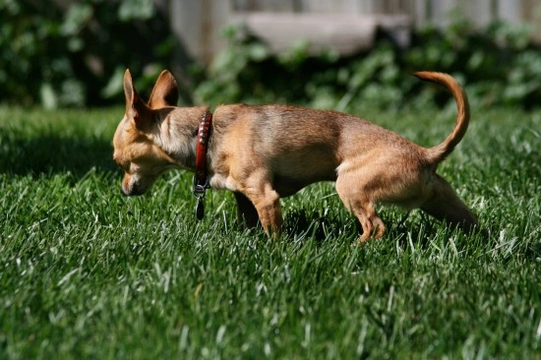
Why Does My Male Dog Pee Like a Girl?
We are all familiar with the sight of male dogs cocking their legs to pee, and many of them spend the larger part of their walks sniffing around and looking for good locations to distribute their scent!
However, this behaviour is a learned response rather than something that naturally occurs as part of the dog’s development, and if you have ever owned a young dog or a puppy, you will likely have noticed that younger male dogs squat to pee, in the same way that female dogs do. Male dogs generally only begin to learn to cock their leg to pee when they reach the age of 6-12 months old, and in some cases, much later. In some cases, certain male dogs will never bother to learn to cock their legs at all, and will go through their whole lives squatting to pee!
While it is not hugely common for male dogs to never cock their legs, for dogs that don’t bother, this is very rarely an issue. Even amongst the most seasoned of leg lifters, male dogs will sometimes on occasion still pee “the girly way,” as and when it suits them. However, if your dog has always previously cocked their leg the majority of the time but seems to have reverted to squatting as their normal modus operandi instead, this may be indicative of a problem in the making.
Read on to learn more about some of the reasons why male dogs may squat to pee.
Why do dogs learn to lift their legs in the first place?
In order to decode the reasons behind a male dog squatting to pee, first of all it is important to understand what leg-cocking actually means. As mentioned, cocking the leg is a learned behaviour, and one that dogs pick up from other dogs that they see and meet when out and about.
For male dogs, peeing is not just about relieving a full bladder, but also, about scent marking the area that they are in and infusing it with their own signature. Lifting the leg to do this means that the dog in question can get a better aim, and distribute their scent higher up than if they squat close to the ground. The in turn allows their scent to permeate a larger area, and to spread on the wind as well as on the ground.
Squatting rather than lifting the leg
As lifting the leg is something that dogs learn, if your dog has not spent a huge amount of time among other male dogs (particularly when they are young) they might simply never learn the behaviour at all! Added to this, if your dog is not particularly territorial with other dogs, they might not feel the same motivation to scent mark, and let other male dogs know that they are there.
Even among dogs that do know how to cock their leg and usually do this, most dogs will sometimes on occasion squat instead. This is often the case when they are particularly in need of a pee, and are prioritising simply voiding their bladders rather than sending a message to other dogs.
A male dog that spends lots of his time with female dogs may never pick up the leg lifting skill, or if they do, not see the need to use it. Similarly, it is not unheard of for female dogs that live with a lot of male dogs to get into the habit of sometimes cocking their legs too, albeit with less effect!
When squatting is not normal
While squatting to pee is a normal behaviour in and of itself, there are some situations in which going for a squat rather than lifting the leg on a regular basis may indicate that something is wrong. Any health or medical conditions that generate a strong urge to pee regularly, or leads to urinary incontinence can lead to squatting; particularly in the case of incontinence, when your dog might not even be aware that they are peeing.
If you start to notice that your dog begins to prefer squatting when they pee, particularly if they tend to need to go to the toilet more often than normal or begin having accidents, it is important to take them to the vet to rule out a bladder infection or problems with the kidneys.
As dogs age, their joints and muscles don’t work as well as they used to do, and many older dogs may over time develop age-related arthritis. Arthritis can lead to pain and stiffness of the joints, and if this is affecting the limbs themselves, might make leg lifting more hassle than it is worth to your dog, causing them to prefer the squat position instead.
Again, a veterinary check up can tell you whether or not your dog is squatting due to joint pain or stiffness, and your vet can help you to manage the onset of arthritis or any other age-related joint condition.



